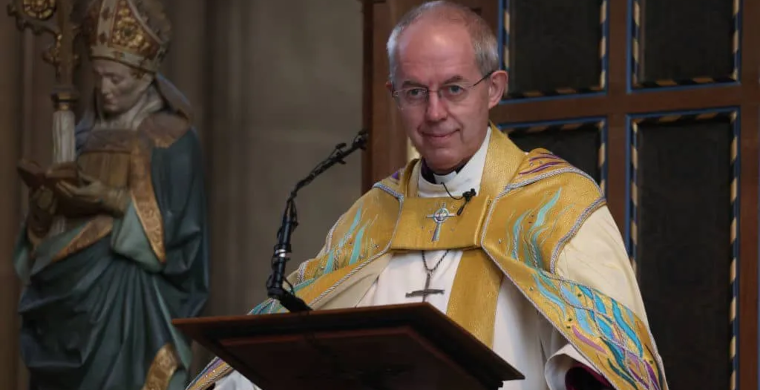The Church of England is obsessed with racial self-flagellation
By Michael Mosbacher
https://www.spectator.co.uk/
2 July 2022
The Church of England has been displaying distinctly masochistic tendencies of late. The Church has previously tried to return its tainted Benin bronzes, even though their specimens were crafted 80 years after the Kingdom of Benin succumbed to British forces and its palaces were looted in 1897.
This week the Archbishops' Commission for Racial Justice -- chaired by the Blair-era Labour minister and subsequently High Commissioner to South Africa Lord (Paul) Boateng -- issued its first report; there are five more to come over the next three years, so we can anticipate much more self-abasement. Needless to say, in the report's opening message Boateng writes of a 'sense of deep hurt and of pain' with those 'who have experienced and are still experiencing racial injustice within and at the hand of the Church of England'. The point of this Commission is to tell Anglicans how guilty they collectively are -- and it dutifully does just that.
The report asks the Church to make amends, indeed to offer 'reparation and redress', for assets it may have accumulated originating from the profits of slavery. Although having to acknowledge that the extent of these holdings is not yet known, it makes much of the investments the Church may have held in pre-1837 slave-owning enterprises. The report has much less to say about the many Anglican clergy at the forefront of the abolitionist cause.
As has become the fashion, what really gets our Commissioners going are public statues -- both the taking of them down but also the erecting of them: 'There is still no national memorial to the victims and those who resisted slavery and this needs to be rectified.' The report suggests that the Church of England should contribute to the building of such a -- presumably suitably grandiose -- memorial as part of its atonement for slavery.
There is a good case for a national memorial commemorating the wrongs of the slave trade, perhaps a stronger one than there is for the proposed Holocaust memorial near the Houses of Parliament, in that Britain was indubitably involved in slavery whilst it was in no way responsible for the Holocaust. But if the memorial is to tell the full story of Britain's involvement in slavery and continue to educate future generations it must be more than a mea culpa and additionally acknowledge our central role in the global abolition of the malign trade. I suspect this is not what the Commissioners have in mind.
Where the report is much more troubling is in its eagerness to take down memorials. Earlier this year Jesus College, Cambridge failed in its attempts to take down a stone plaque from its chapel to its benefactor 17th-century trader and philanthropist Tobias Rustat, when the ecclesiastical courts ruled against it. The College's Master Sonita Alleyne wanted to remove the memorial due to his wealth allegedly having been amassed through the profits of slavery. The Consistory Court of the Diocese of Ely found that this was not the case:
'The true position is that Rustat only realised his investments in the [slaving] Royal African Company in May 1691, some 20 years after he had made his gifts to the college and that any moneys Rustat did realise as a result of his involvement in the slave trade comprised only a small part of his great wealth, and they made no contribution to his gifts to the college.'
The Commissioner's response to this judgement is not that institutions should be more careful before embarking on divisive and expensive attempts to take down historic and artistically important monuments but that the ecclesiastical courts need to be reformed. It does not consider that Jesus's move was wrong, merely that the judgment was wrong. Far from thinking that other institutions should not follow Jesus's example, it is worried that they will be put off from attempting to take down other memorials.
The Commissioners note that: 'there was, it must be said, a noticeable lack of ethnic diversity among the participants in this case'. The report accordingly recommends that 'Assessors' should be appointed to ecclesiastical courts who have 'the lived experience of diverse communities and of the history of those communities within these Islands and beyond'. In other words, it recommends that people should be appointed to the courts on the basis of their colour and their ideological leanings. It seems to be saying, if your preferred outcome is thwarted, get yourself a new Court. Seemingly, if one is on the side of progress due process can go out of the window.
The Commission moans that the Church has been tardy in providing funding for its initiatives -- 'we have taken the view that a minimum of £20 million needs to be set aside at the outset of this upcoming period to fund the delivery of From Lament to Action' and in establishing the Orwellian sounding Racial Justice Directorate. The Church leadership will surely hastily comply with these demands. The funding will inevitably be used to point out just how sinful the Church has been and make new demands for financial contrition. On past form, the Anglican hierarchy will love it.
Michael Mosbacher is the co-founder of Standpoint magazine














